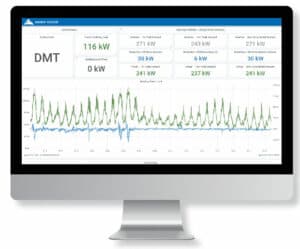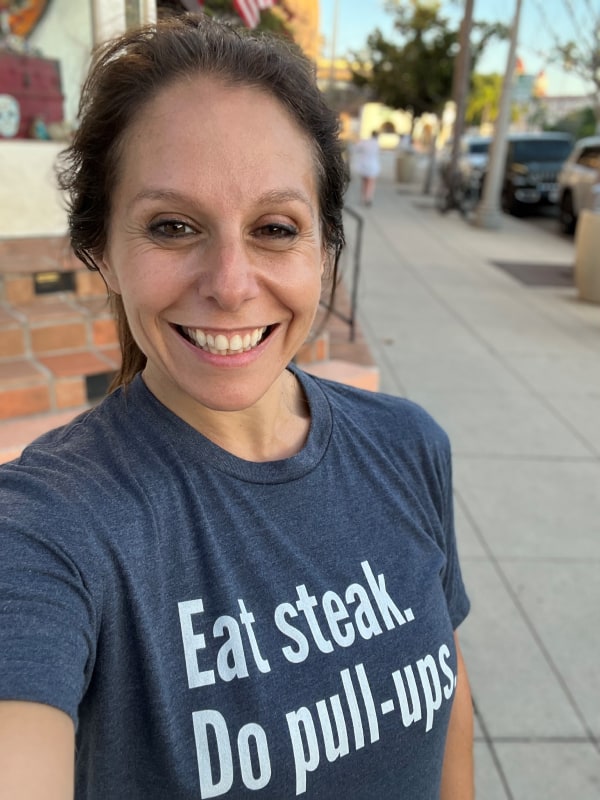Turning off lights, short showers, and dialing down the heat were practiced with near-religious fervor in Ulupreneur Amrit Robbins’ family. His environmentalist parents were instrumental in shaping his worldview. Growing up in Yarmouth, Maine, he was an avid trumpet player throughout his high school years, exploring jazz, funk, and even classical music. When he wasn’t playing music, he was all about computers and technology. And although conservation was drilled into him at a young age, his transformational moment came when he saw the documentary An Inconvenient Truth. Amrit says it rocked his world; that’s when he realized he wanted to focus his life’s work on climate change.
Amrit believed the best way to solve environmental challenges was through policy. When he entered Stanford, he intended to major in political science, but switched to engineering—and that’s when he caught the entrepreneurial bug. His views of policy as the end-all be-all shifted. While he recognized that policy can be a change-enabling tool by forcing people to do things that they often don’t want to do by providing non-market-based incentives, he thought “If someone could use the market to introduce products that are not only the best value but also sustainable—and bring those types of products to market—then decision-makers will choose the new products every time. That’s how you achieve gigantic, scalable impact..
After college, he worked at an energy services company; their biggest customer was a national grocery chain with nearly 400 stores. Their job was to look at overall energy consumption at the facilities, and refrigeration was nearly 60% of that total. The customer, however, told them to ignore it and to focus on other things. That stunned Amrit, who saw a massive opportunity for energy savings while many in the industry assumed that refrigeration was untouchable.
There are approximately 100,000 huge central refrigeration systems throughout the United States, which Amrit believes are a big liability—for the grid, the climate, the planet, and these companies’ bottom line.
He co-founded Axiom Exergy in 2015, a hardware solution that would modify shipping containers to function as giant thermal batteries and be placed at grocery stores. The devices would use electricity to pre-cool and then take over refrigeration duties during hours when electricity gets more expensive, saving the store money. But there were massive challenges in terms of permitting, as well as other costs; eventually, they sold the commercial product to Amazon/Whole Foods and Walmart. Then the pandemic hit. They couldn’t raise money, so they shut down the company.
Amrit and his new co-founder Nikhil Saralkar realized they could solve the same energy problems using software and provide additional value streams beyond energy in the areas of maintenance, operations, sustainability, and compliance.

In 2020, they founded Axiom Cloud, an artificial intelligence platform for buildings with large thermal loads, such as retail grocery stores, warehouses, and commercial buildings. The firm has seven major grocery chains as customers, including Whole Foods, Grocery Outlet, and Sprouts. They doubled committed ARR in the last two quarters, and they are on track to double again even faster.
Amrit was also chosen as one of Forbes: 30 Under 30 in the energy category in 2017. We spoke to him about how he hopes to push an industry stuck in a 20th-century refrigeration mode into the new millennium.
How did you get your first customers?
Because we had experience working with a group of customers in the past, we went to them and said, “Look, you know us, we deliver results. We do what we say we’re going to do. And we have a new idea, which is that we can solve a lot of the same problems we’ve talked about over the years, but we can do it using a completely new approach, which is software.” And because of those personal relationships we’d built over the years, they said, “Yes, we’ll give you a shot.”
What have been your biggest challenges?
Our biggest challenge is still that folks in retail grocery stores are basically adverse to change. Our customers are kind of stuck in the 1990s from a technology standpoint and they’re feeling enormous amounts of pain, but they often don’t want to try to do something new and innovative to alleviate that pain. So, encouraging leadership at retail grocery chains to look at new ways to save energy and money has been an uphill battle.
Why Axiom? Why now?
The concept of using data to make decisions is so widespread, but it hasn’t made it to commercial refrigeration yet. It makes sense that getting data out of these systems—sending it to the cloud, converting it into actionable insights, and then actually solving problems, addressing opportunities—this automation needs to happen now.
Refrigeration is highly regulated, and leaks are not only horrific for the environment but can be quite expensive. Add to that skyrocketing energy costs, and it’s just painfully obvious that data automation needs to happen in this space.
What are your dreams for Axiom Cloud?
There’s retail grocery, and then there’s moving up what we call the “cold chain,” which would be warehouses, and then moving further up are food processing facilities. We want to be the digital layer, the cloud layer for commercial refrigeration throughout the entire food chain.




